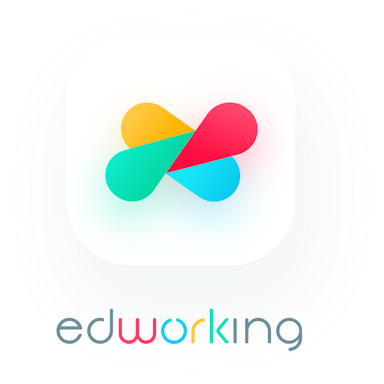In the ever-evolving world of project management and team collaboration, Taskade has emerged as a beacon of efficiency and simplicity. Known for its sleek design and user-friendly interface, Taskade has carved out a niche for itself, especially among small teams, remote workers, freelancers, and startups. This cloud-based platform has made strides by offering an array of tools for task management, mind mapping, real-time collaboration, and more, all wrapped in an intuitive package. Yet, in the dynamic sphere of project management tools, one size seldom fits all.
As we venture deeper into 2025, the landscape of work environments continues to diversify. With this diversification comes a growing need for project management tools that can adapt to varying workflows, team sizes, and project complexities. While Taskade holds its ground as a versatile solution, there's a burgeoning curiosity about what else is out there – what other tools could potentially align better with specific organizational needs or offer features that might be lacking in Taskade?
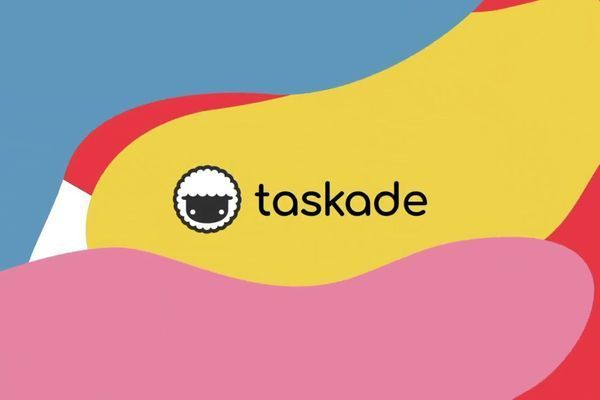
Recognizing this, we delve into the realm of Taskade alternatives. This exploration isn't just about finding substitutes; it's about understanding the nuances that make each tool unique and suitable for different types of teams and projects. In the following sections, we'll embark on a journey through the top 5 Taskade alternatives as of 2025, scrutinizing each for its features, user experience, and how they stand out in the crowded market of project management tools. Whether you're a small business owner, a team leader in a large corporation, or a freelance professional, this guide aims to enlighten you on the best fit for your project management needs.
 Understanding the Need for Alternatives to Taskade
Understanding the Need for Alternatives to Taskade
The Evolving Landscape of Project Management
As we navigate through 2025, the landscape of project management continues to evolve at a breakneck pace. This evolution is fueled by a myriad of factors, including technological advancements, shifting workforce dynamics, and the relentless pursuit of efficiency in a hyper-competitive business environment. The onset of widespread remote work, the rise of gig economy, and the increasing reliance on cross-functional teams have collectively rewritten the playbook for project management.
In this rapidly changing scenario, the needs of project management have also transformed. Today's projects demand tools that offer not just task tracking and scheduling, but also advanced collaboration features, integration capabilities, and real-time data analytics. The challenge lies in balancing simplicity with functionality. Teams require tools that are easy to adopt and use, yet powerful enough to handle complex project demands. This has led to a growing appetite for alternatives to mainstream tools like Taskade, which, while effective, might not cater to every nuanced need of the modern workplace.

Unique Features vs. Diverse Needs
When it comes to project management tools, there's no one-size-fits-all solution. Each organization, team, and project has its unique set of requirements, and what works for one might not be ideal for another. This is where the exploration of Taskade alternatives becomes crucial.
For instance, a startup with a small team might prioritize ease of use and quick setup, whereas a large enterprise might look for robust features like extensive integrations and detailed reporting. A creative agency could prefer a tool with strong visual project management capabilities, while a software development team might need something with advanced agile functionality and sprint planning features.
The key is to match the tool's features with specific team requirements. Some teams might need a simple, straightforward task list, while others might require detailed project timelines with dependency tracking. Similarly, while some teams thrive with a Kanban-style interface, others might prefer a more traditional Gantt chart view.
In essence, understanding these diverse needs and how they align with the unique features of various Taskade alternatives is crucial. It's about finding that sweet spot where the tool not only fulfills the basic project management requirements but also enhances team collaboration, productivity, and overall project success. As we move forward, we'll explore some of the top alternatives to Taskade in 2025, each with its own set of strengths and offerings, poised to cater to these varied and evolving needs of modern teams.
 Top 5 Taskade Alternatives in 2025
Top 5 Taskade Alternatives in 2025
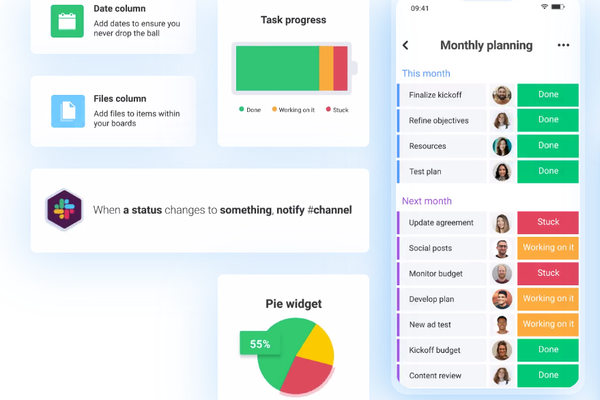
 1. Monday.com
1. Monday.com
In the landscape of project management tools, Monday.com stands out as a highly customizable and user-friendly platform. Launched in 2014, it has rapidly evolved into a go-to solution for a wide range of businesses, from startups to large enterprises. Its appeal lies in its visually intuitive interface and a modular design philosophy, allowing users to tailor the platform to their specific needs.
Key Features
Monday.com excels with features such as customizable workflows, time tracking, automated notifications, and an array of integration options. Its strength lies in its ability to adapt to various project methodologies, be it Agile, Scrum, or traditional project management styles. With features like Kanban boards, Gantt charts, and workload overviews, it provides a comprehensive suite for managing projects of all sizes and complexities.
User Experience and Interface
The platform is renowned for its emphasis on a clean and engaging user experience. Its vibrant color scheme and easy drag-and-drop functionality make project management not only efficient but also enjoyable. The dashboard is intuitively designed, ensuring that new users can quickly acclimate without feeling overwhelmed.
 2. Asana
2. Asana
Asana, founded in 2008, has been a staple in the project management arena for years. It's known for its straightforward approach to task management and collaboration. Asana strikes a balance between simplicity and robust functionality, making it a popular choice for a variety of teams.
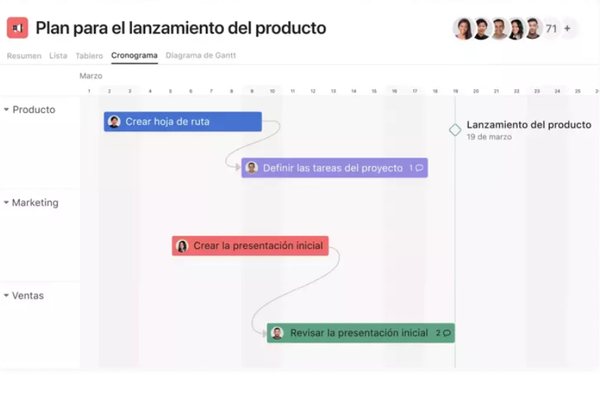
Key Features
Key features of Asana include task assignments, due dates, project timelines, and an array of project views such as lists, boards, and calendars. Its real-time updates and collaboration tools foster team interaction and ensure everyone is on the same page. Asana also offers automated workflows to streamline repetitive tasks and increase efficiency.

Customization and Flexibility
One of the standout aspects of Asana is its high level of customization and flexibility. Teams can create custom fields, sections, and templates to fit their specific workflow requirements. This adaptability makes it an attractive option for teams with unique project management needs.
 3. Trello
3. Trello
Trello, with its launch in 2011, introduced a refreshing approach to project management with its card-based system. It's particularly favored by teams looking for a simple and visually appealing tool to manage their projects and workflows.
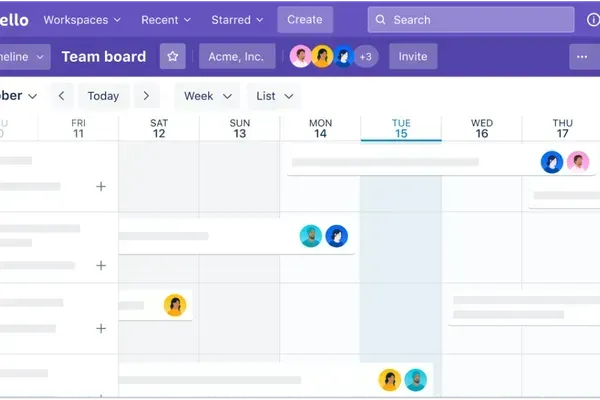
Key Features
Trello’s key features revolve around its boards, lists, and cards, which can be used to organize tasks and projects. The platform offers a range of power-ups (add-ons) for enhanced functionality, such as calendar views, voting on tasks, and advanced checklists. The simplicity of dragging and dropping cards across lists for task progression is a highlight.
Visual Project Management
Trello’s strongest suit is its visual project management. The platform’s board and card system provide a clear and concise overview of tasks and projects at a glance. This visual approach makes it easy for team members to understand the status of work and collaborate more effectively.
 4. ClickUp
4. ClickUp
ClickUp, a relatively newer entrant, launched in 2017, has quickly made a name for itself in the project management space. It's positioned as an all-in-one productivity platform,
offering a wide range of features that cater to various aspects of project and task management.
Key Features
ClickUp's key features include customizable task management options, goal tracking, time management tools, and a rich document editor. The platform stands out for its ability to house all work in one place, reducing the need for multiple apps. Features like mind maps, wikis, and dashboards add to its comprehensive nature, making it a versatile tool for teams of all types.
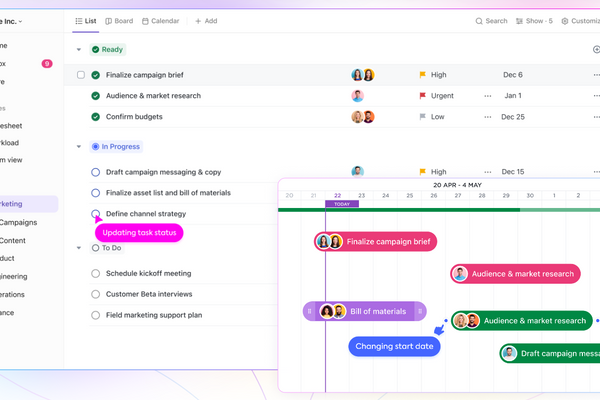
Integration Capabilities
A significant strength of ClickUp is its extensive integration capabilities. It seamlessly connects with a variety of other tools and services, such as Google Drive, Slack, GitHub, and many more. This makes it an ideal choice for teams that rely on multiple platforms for their workflows, ensuring smooth interoperability and data synchronization across different applications.
 5. Notion
5. Notion
Notion, launched in 2016, has risen in popularity as a highly versatile tool that blends notes, tasks, wikis, and databases into a single, unified workspace. It's favored by teams and individuals who seek an all-in-one platform for knowledge management, project planning, and collaborative work.
Key Features
Notion's key features include a powerful page editor that allows users to create customized layouts, a database system for organizing and visualizing data in various formats, and collaborative workspace areas. The tool also provides advanced note-taking capabilities, making it a unique hybrid between a project management tool and a knowledge repository.
Versatility and Knowledge Management
Notion is particularly acclaimed for its versatility and strong knowledge management features. It offers a blend of flexibility and structure, enabling users to create tailored workspaces that suit their specific project and information management needs. Its ability to centralize documents, tasks, and databases in a cohesive manner makes it an excellent choice for teams that prioritize knowledge sharing and comprehensive project documentation.
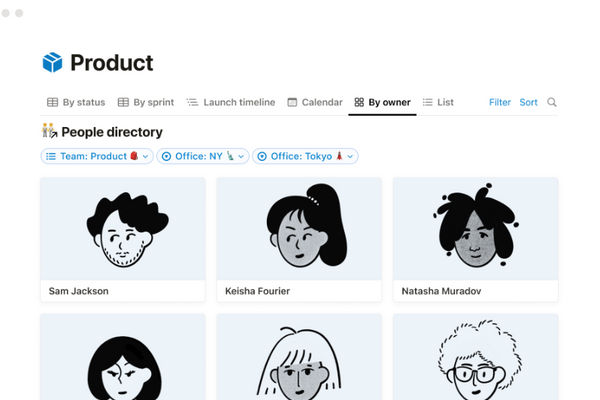
 Comparative Analysis of Taskade Alternatives
Comparative Analysis of Taskade Alternatives
Feature Comparison
When selecting a project management tool, it's crucial to compare the features of each to understand which best suits your needs. Here's a breakdown in a bullet point format:
Monday.com
- Customizable workflows
- Time tracking
- Automated notifications
- Integration options
- Multiple project views (Kanban, Gantt, workload)
Asana
- Task assignments and due dates
- Project timelines
- Real-time updates and collaboration tools
- Automated workflows
- Customizable templates
Trello
- Board, list, and card system for task organization
- Variety of power-ups for added functionality
- Simple drag-and-drop interface
- Visual project management
ClickUp
- Comprehensive task management options
- Goal tracking and time management tools
- Rich document editor
- Extensive integration capabilities
Notion
- Powerful page editor for customized layouts
- Advanced note-taking capabilities
- Database system for data organization
- Centralized workspace for documents, tasks, and databases
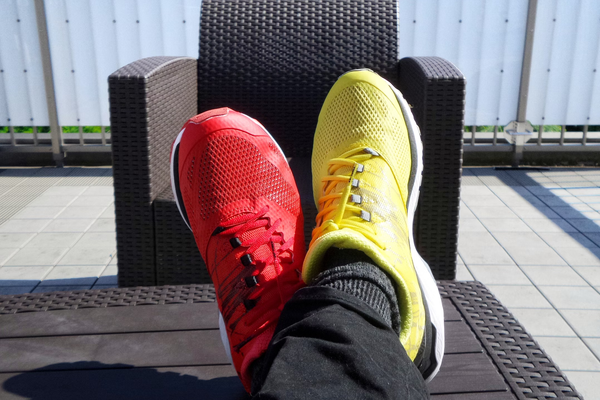
Pricing and Plans
Understanding the pricing structure of each tool is essential for budgeting and determining the cost-effectiveness for your team.
- Monday.com: Offers a free basic plan with limited features. Paid plans start from a standard tier and scale up, offering more features and capabilities at each level.
- Asana: Provides a basic free version. Premium and business plans offer more advanced features and integrations, with pricing based on the number of users.
- Trello: Has a free version with basic functionality. Paid plans include additional features like larger file attachments and more power-ups.
- ClickUp: Features a free version with limited features. Paid plans offer additional functionalities, with pricing varying based on the number of users and features required.
- Notion: Offers a free version primarily for personal use. Team and enterprise plans are available, which provide additional features like advanced permissions and administrative tools.
The Main Difference Between Taskade and its Alternatives
The main difference between Taskade and its alternatives lies in their specific focus areas and target user groups.
- Taskade is known for its simplicity and focus on small teams and individual freelancers. It emphasizes quick task management and real-time collaboration, making it ideal for those who need a straightforward, no-frills platform.
- Monday.com caters more to medium and large-sized teams, offering extensive customization and a variety of views that suit different project management styles, making it a versatile choice for diverse team needs.
- Asana balances simplicity with functionality, offering more in-depth project planning tools while maintaining an easy-to-use interface. This makes it suitable for teams that need a bit more than basic task management but don't want an overly complex system.
- Trello is ideal for teams and individuals who prefer a highly visual and intuitive interface. Its card-based system is great for managing smaller projects or tasks within a larger project.
- ClickUp aims to be an all-in-one workspace, combining task management with document storage, goal tracking, and more. This makes it a good option for teams looking for a comprehensive platform that can handle various aspects of work beyond just project management.
- Notion stands out for its blend of note-taking, database, and task management features. It's particularly well-suited for teams that need a strong emphasis on knowledge management and documentation, alongside project tracking.

In conclusion, while Taskade offers a straightforward and user-friendly experience for smaller teams and individual users, its alternatives provide a range of functionalities and customization options catering to broader and more complex project management needs. The choice between these tools largely depends on the specific requirements, team size, and work style of your organization.

 How Edworking Ties Into This Landscape
How Edworking Ties Into This Landscape
In the diverse ecosystem of project management and collaboration tools, Edworking emerges as a noteworthy player. Edworking, while being relatively new in the field, brings a unique blend of features that resonate with the evolving needs of modern teams. It’s designed to cater to the demands of remote and hybrid work environments, making it particularly relevant in today's work culture where flexibility and connectivity are paramount.
Edworking stands out for its seamless integration of task management, file sharing, and communication tools within a single platform. This integration facilitates a cohesive workflow, allowing teams to manage projects, communicate, and collaborate without the need to switch between different applications. Such an all-in-one solution can significantly streamline processes and enhance productivity, especially for teams that operate remotely.
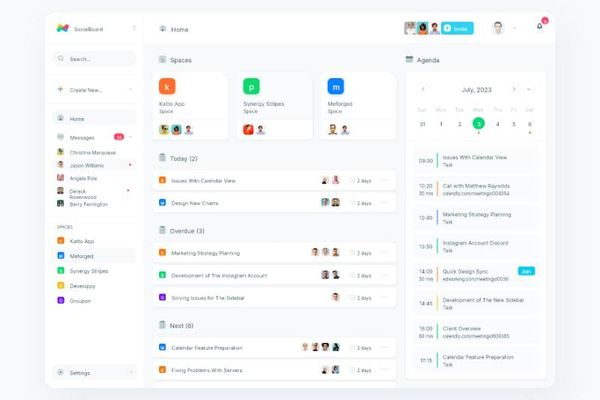
One of the key aspects where Edworking shines is in its commitment to enhancing team communication and efficiency. In line with this, Edworking offers tools like the Paragraph Typing Test, which can be a fun and useful way for team members to improve their typing skills, thereby boosting their efficiency in digital communication.
The relevance of Edworking in this landscape of Taskade alternatives is its focus on flexible and integrated solutions. For teams and individuals evaluating different project management tools, Edworking presents itself as a comprehensive option that not only offers the standard task and project management features but also enhances team interaction and collaboration through its built-in communication tools.
In a world where remote work is becoming increasingly common, a platform like Edworking that integrates project management with effective communication tools could be exactly what teams need to stay connected and productive.
 Conclusion
Conclusion
Navigating through the myriad of project management tools available in 2025 can be a daunting task. However, understanding the key features and offerings of the top alternatives to Taskade can significantly simplify this process. To recap, we explored Monday.com, with its customizable workflows and a wide range of integrative capabilities; Asana, balancing simplicity with robust functionality; Trello, known for its visual project management and intuitive interface; ClickUp, an all-in-one workspace catering to a variety of work needs; and Notion, which stands out for its knowledge management and versatile workspace capabilities.
Choosing the right tool for your team's specific needs is a critical decision. It’s not just about the features a tool offers, but how well those features align with your team’s workflow, project complexity, and communication style. For small teams or individual freelancers, simplicity and ease of use might be key, making a tool like Taskade or Trello ideal. On the other hand, larger teams or those managing complex projects might require the comprehensive functionalities offered by platforms like Monday.com or ClickUp.
Remember, the goal of a project management tool is to enhance efficiency and simplify processes, not complicate them. Therefore, it’s important to consider not only the capabilities of the tool but also its learning curve and how well it integrates into your existing work processes. A trial run of the tool can often be a worthwhile step in making an informed decision.
In the end, the perfect project management tool is one that fits seamlessly into your team’s workflow, enhances productivity, and adapts to your evolving needs. Whether it’s one of the alternatives discussed or another tool altogether, the right choice is the one that helps your team achieve its goals in the most efficient and effective way possible.







